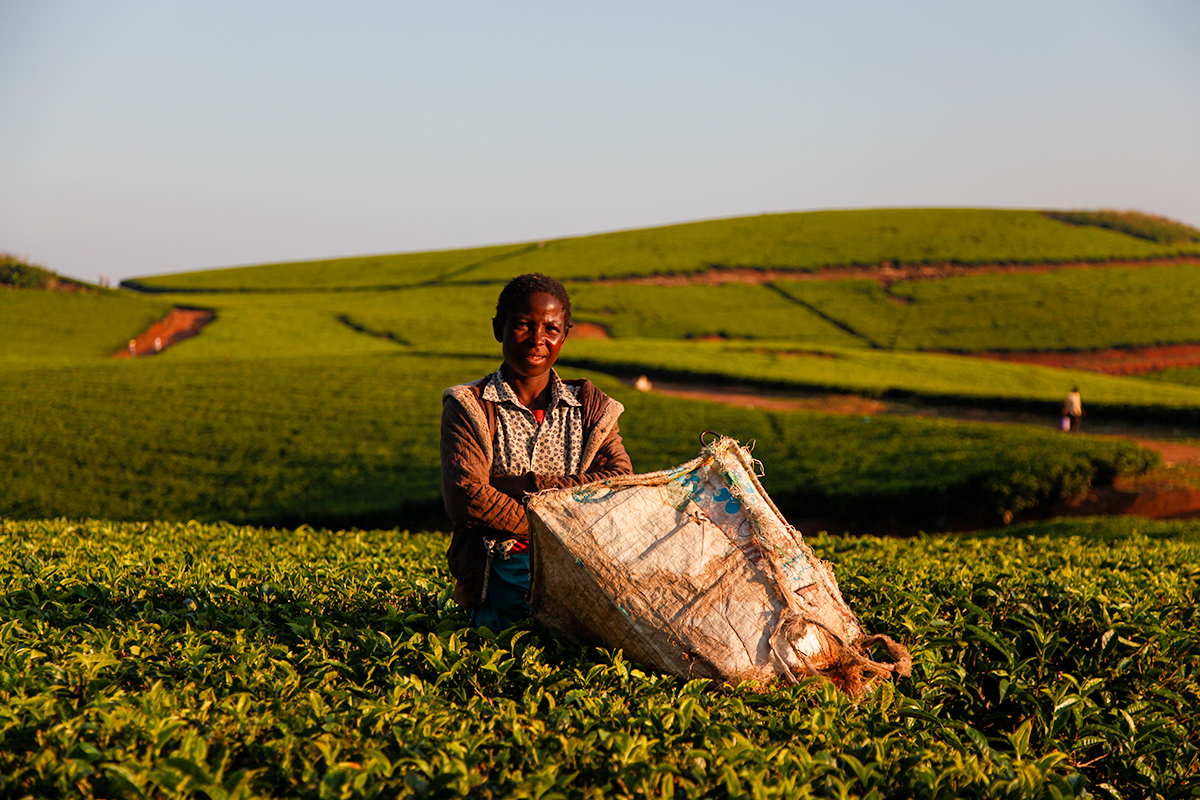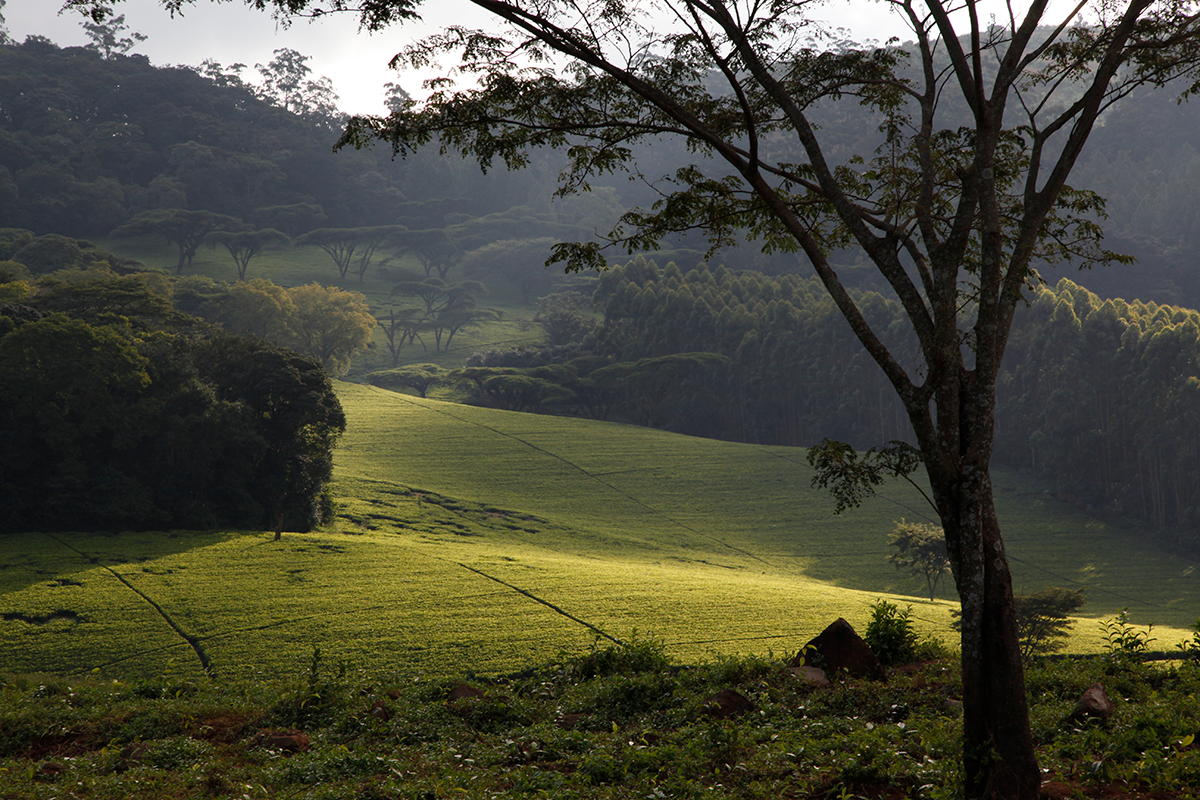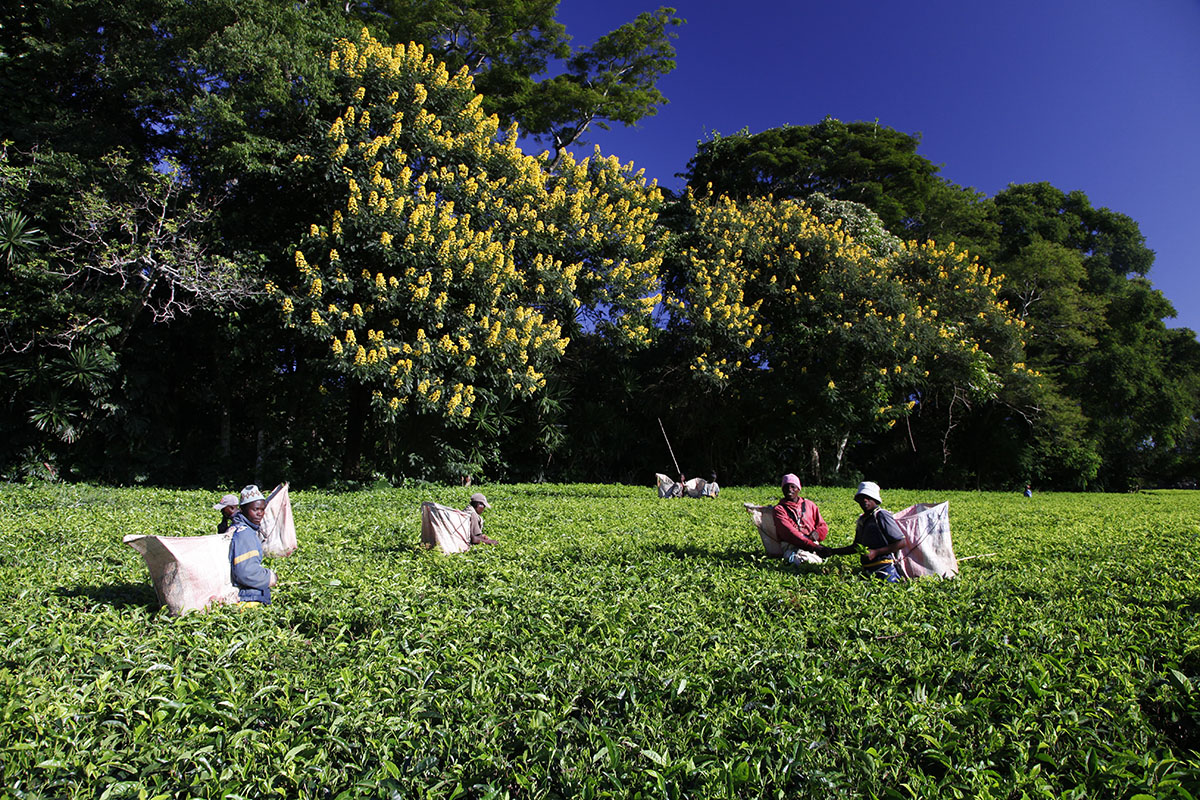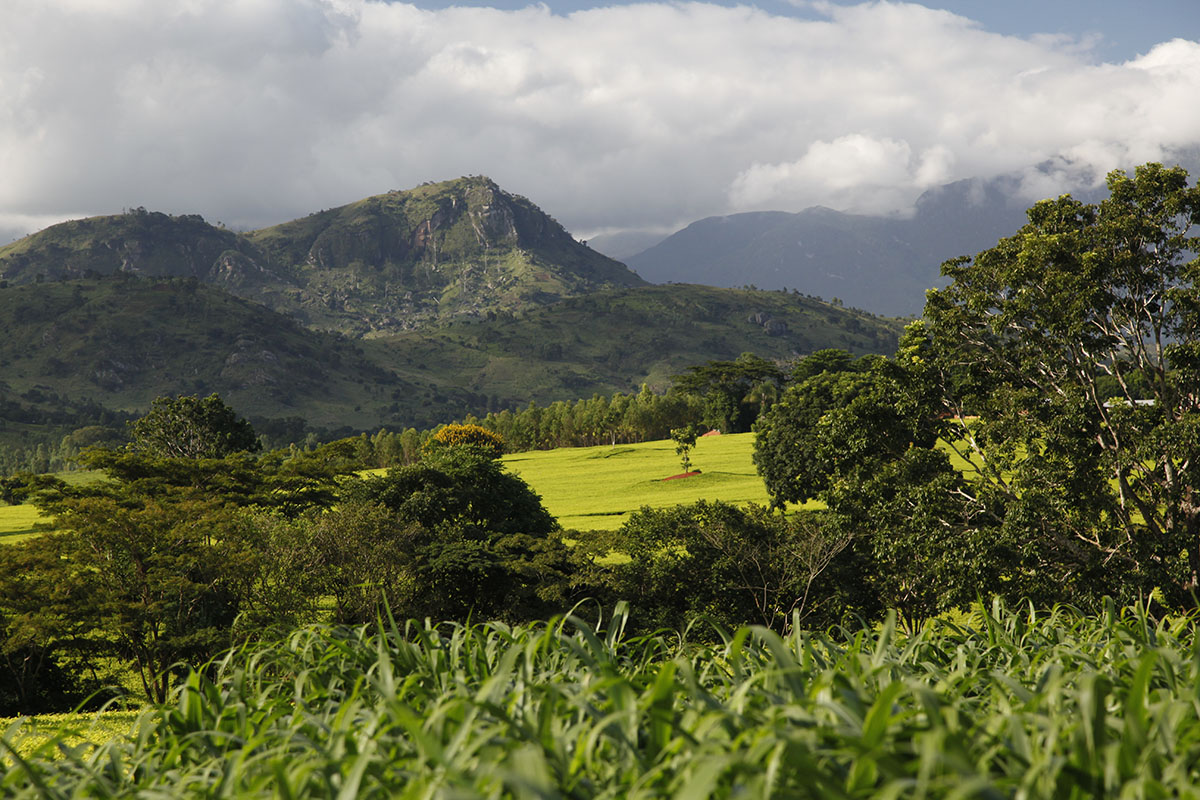When I visit a tea producer, I try to take a few samples for them to try. Most farmers don’t travel. They spend the whole year on their plantation and have very few opportunities to taste teas other than their own. I think it’s important to give them a chance to try other teas, not in order to imitate them, but to inspire them and connect them with other tea producers who are proud of what they make. These tea tastings, like here in Satemwa in South Africa, are very special to me.
Malawi
A quality harvest
Tea doesn’t harvest itself. It’s important to me to highlight the work of the people who pick the buds and the next two leaves from each shoot that make up a quality plucking. This delicate work, still done by hand in many countries, is particularly important because it is impossible to produce a good tea if the leaves are not picked carefully enough in the first place.
A photo reveals
Sometimes a photo poses a question. When the shutter is released, the photographer – on the other side of the lens, camera in hand – may not be aware of anything. They are absorbed in their subject, waiting for the right light, adjusting the framing, shutter speed and depth of field. It’s only when they see the photo on a computer screen that things are revealed. Here, for example, I can see the absence of trees. I didn’t notice at the time. How is that possible? And how is it possible to deforest in this way, to farm so intensively on such low hills?
But what I’m really struck by here is the mystery of photography, which sometimes works in two stages. First, it’s a response to appealing shapes and colours. Then there’s something deeper, which reveals itself afterwards.
Wild and tamed nature
This photo is a beautiful sight, in my humble opinion. Tea bushes grow amid dense vegetation. A rugged, sloping landscape, numerous trees of different species… There’s a harmony between the cultivated plants and wild nature. It’s easy to imagine the wealth of flora and fauna to be found in such a diverse environment. For the amateur photographer in me, there’s pretty much only one colour – at first glance. On closer inspection, what a multitude, what variety! What better way to celebrate spring than with this abundance of greens?
The cuttings nursery
To make good tea, you need to know your tea bushes well. It’s a lot easier if you’ve tended them yourself from a young age. Many plantations – like this one in Satemwa, Malawi – take their own cuttings and then grow them in a nursery for eighteen months. Shaded to protect them from too much sun and too little humidity, the cuttings develop their root systems. Later, the young tea plants are planted out in the ground and begin their adult lives. Then it’s time to harvest the shoots, which are few and far between in the early seasons, but become more abundant as the bushes develop and branch out.
In Malawi, the Satemwa plantation is celebrating its 100th anniversary
In Malawi, the Satemwa plantation is celebrating its 100th anniversary. It took me a long time to start exploring Africa – I was already busy in Asia. But after receiving many requests and to satisfy my own curiosity, to see if I could find tea as good in Africa as in Asia even though the plantations are much younger, I went there. I started in Malawi, a country of rare beauty: tea fields bathed in a different light, red earth, unfamiliar faces. The children were the same as I meet everywhere, running after me, bursting with energy and laughter. Alex, the planter for three generations now, has created a space in the impressive building to develop rare teas. It is the start of an exciting venture and a wonderful discovery for me. Happy anniversary to all at Satemwa.
Alex cultivates curiosity
By the time you read this, I’ll be with my friend Alex, tasting each of his teas. His Satemwa plantation in Malawi is one of the best in Africa. Not content with making tea for industrial producers, Alex set up different workshops to enable him to experiment – with success. He’s tried all types of processing methods to make semi-oxidised, green, white, fermented, smoked and sculpted teas. Curiosity doesn’t kill the cat; on the contrary, it helps us progress, and Alex is a brilliant example.
Search carefully
Tea was introduced to Malawi at end of the 19th century by Scottish missionaries. It grows in the far south of former Nyasaland, a stone’s throw from Mozambique. Like many African countries, most of Malawi’s tea is grown for the tea bag market. But it is sometimes possible to find rarer teas, if you search carefully.
Celebrating “déconfinement” in France
To celebrate “déconfinement” in France, I’m taking you to Malawi. I expect not many of you have been to this country in East Africa, and, from my experience, not many people can find it on a map either. The south of former Nyasaland is dominated by beautiful mountain ranges, as well as high plateaus covered with tea plants.
Today, I’m offering you a new way to travel in the post-Covid era. No need to take a plane or get a visa. There’s no time difference. You can view the photos of this blog on a big screen and travel from one country to another, even sipping a tea from the relevant country at the same time. Try it!
The work of a tea researcher
In less than three months, the spring cycle will begin, and with it will come a deluge of new pluckings. As in every year, in addition to our regular selection, I will set off with my assistant tea researcher in search of rare teas. The work of a tea researcher involves constantly reviewing the teas we choose and tasting new teas from farmers we work with already (there’s no guarantee that someone who produced an exceptional tea the previous year will produce anything as good the year after). The work also consists of seeking out new farmers, both in well-established production regions as well as new areas where pioneers are starting to gain the necessary expertise. This photo was taken in Malawi, a country that just a few years ago, nobody would have suspected of being capable of producing good tea.




